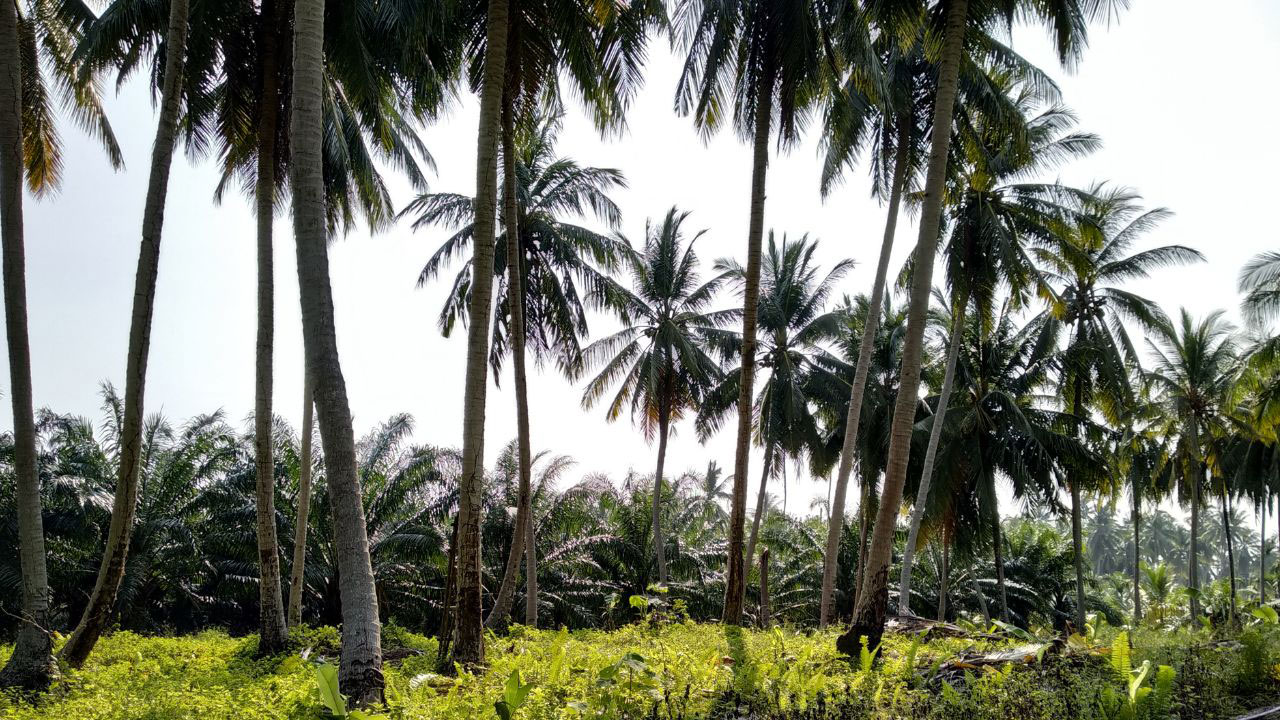



Coconut cultivation in India has a rich history dating back centuries. With its versatile uses, from culinary delights to skincare and beyond, the coconut tree has been rightly termed the "tree of life.
The country glorifies diverse coconut tree varieties with unique characteristics, yield potential, and adaptability to different regions.
This article will explore the 20 Best High-Yielding Coconut Tree Varieties in India, shedding light on their contribution to horticulture and the coconut industry.
For more, read What are the two types of coir fiber?
The four varieties are tall, dwarf, hybrid and special. Let us look into these four varieties in detail.
Tall coconut varieties are known for their height, sturdy trunks, and high yield potential. They are the traditional choice for coconut cultivation in India. Based on the type of coconut, the type of coconut fiber varies.
This variety thrives along the coastal regions of India, producing an impressive yield of coconuts. Its adaptability to saline soil and strong roots make it a popular choice.
Found primarily in the eastern coastal states of India, this variety is known for its strongness and resistance to pests and diseases.
Thriving in the Andaman and Nicobar Islands, this tall variety is well-suited to the island's climate, producing high-quality coconuts.
Another variety from the Andaman Islands, it's known for its high oil content, making it valuable for oil extraction.
Dwarf coconut tree varieties are known for their compact size, ideal for small-scale cultivation and home gardens.
This variety is famous for its early bearing, disease resistance, and adaptability to various soil types.
Well-suited for intercropping, the VHC1 Dwarf is known for its quick yield and compact size, making it a favorite among home gardeners.
Found in the Lakshadweep Islands, this variety is prized for its sweet and refreshing coconut water.
Similar to its dwarf counterpart, this variety is known for its compact size and sweet coconuts.

Hybrid coconut varieties result from cross-breeding between tall and dwarf varieties, offering the best of both worlds—yield and compactness.
A popular hybrid, this variety combines the yield potential of tall types with the compactness of dwarfs.
Known for its adaptability to various climates and quick yield, the TxD (Tall*Dwarf) hybrid is a promising choice for commercial cultivation.
Another hybrid gem from the Lakshadweep Islands, it combines dwarf-like compactness with high yield.
Developed by the Brazilian Agricultural Research Corporation, this hybrid offers a significant yield advantage.
Apart from the mainstream tall, dwarf, and hybrid types, there are special coconut tree varieties with unique attributes.
Named for its orange-coloured fruit, this variety is known for its nut quality and adaptability.
Grown primarily in Tamil Nadu, it is cherished for its sweet coconuts and is often used for making coconut oil.
These are prized for their distinct red fruit and sweet water, making them a favorite for fresh consumption.
Thriving in the Konkan region of India, this variety is known for its abundant yield and flavor.
Named after its developer, this variety is characterized by its intelligent bearing, quick yield, and high oil content.
While India's diverse coconut tree varieties offer immense potential, coconut cultivation faces both challenges and opportunities:
Pest and Disease Management: Coconut palms are susceptible to various pests and diseases, necessitating vigilant management.
Climate Change: Erratic weather patterns and rising temperatures can impact coconut yields and quality.
Ageing Trees: Many coconut groves in India have ageing trees, which may require rejuvenation efforts.
Value-Added Products: The growing demand for coconut-based products like virgin coconut oil, coconut water, and coconut-based snacks presents lucrative opportunities.
Export Potential: India has substantial export potential for raw coconuts and coconut-based products, tapping into global markets.
Sustainable Farming: Embracing sustainable farming practices and organic coconut cultivation can cater to health-conscious consumers.
India's coconut tree varieties offer many choices for farmers and consumers alike. Whether tall, dwarf, hybrid, or exceptional, each type brings unique charm and utility.
As coconut cultivation adapts to modern challenges and explores new avenues, it remains vital to the country's horticulture landscape and the global coconut industry.
As the demand for coconut and its derivatives grows globally, a prominent raw coconut exporter in India is poised to capitalize on this trend.
These high-yielding varieties not only meet domestic needs but also offer abundant opportunities for export, making India a key player in the international coconut market.
The future of coconut cultivation in India holds the promise of sustainability, innovation, and economic growth driven by these exceptional coconut tree varieties.